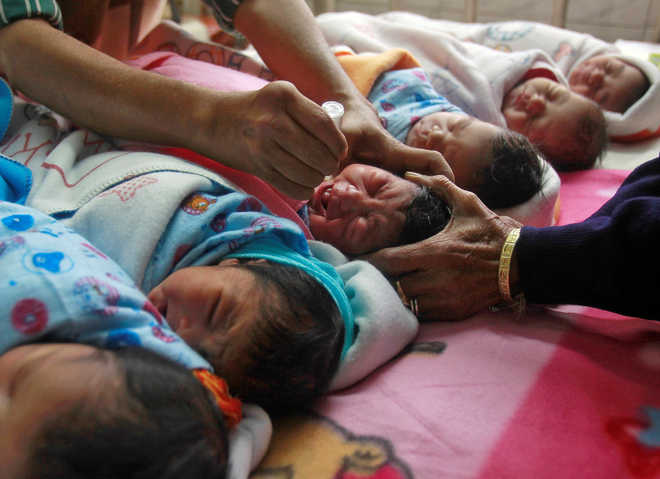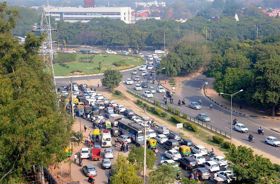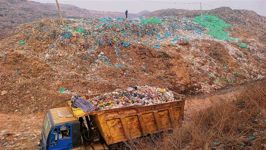
THE detection of the wild polio virus (WPV) type 2 in two batches of the polio vaccine produced by a Ghaziabad-based pharmaceutical unit, Biomed, that provides the vaccine for the government’s immunisation programme has put the country at risk of not quite being out of the woods. That the type 2 strain should be found three years after it had been eradicated around the world and ordered by the WHO to be completely phased out from the oral polio vaccine (OPV) by April 2016 is a matter of grave concern and warrants strict interruption. The stern investigation initiated against the unpardonable lapse by Biomed will reveal how the unit failed to keep the strain out of OPV. Close scrutiny of the children who were administered the adulterated polio vaccine and surveillance of their surroundings for a possible outbreak in excreta as per the protocol should help contain any potential harm and spread of the dreaded bug. The discharge of WPV2 strains into the environment via the oral-fecal route can continue until four months after the strain-tainted OPV vial is given.
As fangs of the paralysis-causing virus bare, it is a crippling blow to India that had surmounted huge hurdles to be certified polio-free in 2014. The coveted tag followed a massive polio immunisation and eradication campaign that ensured that no WPV case was reported after its last case of January 13, 2011. However, while we have maintained WPV-free status all these years, there is an equally urgent need to address the thousands of other cases of the same condition that are called non-polio acute flaccid paralysis.
The latest setback, which has global repercussions, should be used as a wake-up call to not only reinvigorate the polio endgame, but also the quality control and regulatory mechanisms of the drug factories. Towards this end, what is imperative is a big booster dose to disease prevention and health promotion budgets. However, the latest National Health Policy-2017 again falls short in this sphere as it betrays a virtual neglect of the institutions that address preventive care.


























